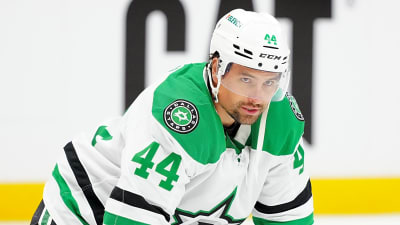
On a day meant to celebrate America's independence, it took a horrific turn when we learned of the tragic and violent death of Steve McNair on July 4, 2009. His passing was heartbreaking and complicated.
McNair was more than just a great NFL player, his Heisman Trophy-worthy performance at Alcorn State made him a certifiable HBCU legend. Today, his legacy still looms large over both black college football and the National Football League.
"Air McNair" was more than an average quarterback, he was a maestro of the gridiron. The Mount Olive, Mississippi, native was immensely talented and transformative.
From the days of modest living in a tin-roofed house in the Delta to becoming a symbol of resilience, excellence, and hope, Steve McNair was for all generations of black athletes, which made his loss difficult to accept to this day.
At Alcorn State, McNair's legend and lore were built on his talent and electrifying playmaking ability, bringing thousands of spectators each week to Southwestern Athletic Conference stadiums in the Deep South. Steve McNair was among the unsung heroes of black college football, setting the new standard for quarterbacks.
He was a bigger and stronger version of Michael Vick, still evermore dangerous both in and out of the pocket.
The Braves' quarterback amassed over 4,000 passing yards and 119 touchdowns, and finished third in the 1994 Heisman Trophy race—a remarkable feat for a player from a HBCU.
Still, McNair's senior season remains as one of the most prolific in college football history: 6,281 total yards and 56 touchdowns, earning him the Walter Payton and Eddie Robinson Awards.
The Houston Oilers needed a quarterback to fill the void left by Warren Moon, who departed from the franchise in 1993. In the 1995 NFL Draft, the Oilers selected Steve McNair as the third overall pick, making him the highest-selected black quarterback in NFL history.
He, along with Moon and Doug Williams before him, began to redefine the standards for Black professional quarterbacks.
When the organization became the Tennessee Titans, McNair guided them to a loss that was two yards short of winning Super Bowl XXXIV. He became the first black quarterback to win the NFL MVP award in 2003, which he shared with Peyton Manning.
He's the greatest Alcorn State athlete ever to wear the purple and gold for the Braves. McNair was tough, as he often played through injuries and still led his team to victories. He earned the respect of his teammates and opponents.
The legacy of Steve McNair reached into the communities of Mississippi, Nashville, and Baltimore. He led a complicated life, as noted from the murder-suicide that took him from his family, friends, and his fans at age 36.
Steve McNair was a trailblazer. Moreover, he was one of the greatest quarterbacks ever to be known as an HBCU Legend — both on and off the gridiron.
HBCU FOOTBALL
More coverage of Steve McNair:
HBCU Football Celebrates McNair And George: 50 Modern-Era Hall of Fame Nominees
HOUSTON - The HBCU football community was highly proud after Thursday's announcement by the Pro Football Hall of Fame. A committee selected 50 Modern-Era former pro football stars as finalists, including two past NFL teammates, one an HBCU head coach and the other an HBCU legend.
Steve McNair, the most outstanding Alcorn State football alumnus of all time, has left an indelible mark on the sport. His achievements, including the Walter Payton and Eddie Robinson Awards in 1994, are a source of pride and inspiration for the HBCU football community.
Sports Illustrated's' Hand Him The Heisman' article, which placed the national spotlight on four-time SWAC Offensive Player of the Year (1991-1994) winner and Lorman, Mississippi, is a testament to his greatness. Steve McNair's senior campaign was awe-inspiring as he amassed 6,281 yards of offense - 5,377 passing and 904 rushing - and 56 combined touchdowns.
Despite Colorado Buffaloes running back Rashaan Salaam eventually winning the 1994 Heisman Trophy, McNair's legacy in collegiate sports remains unparalleled.
Bud Adams and the Houston Oilers drafted McNair as the third overall selection in the first round of the 1995 NFL Draft. He led the Tennessee Titans to Super Bowl XXXIV, where they lost one yard short of breaking the goal line by WR Kevin Dyson.
McNair's illustrious professional football career reached a pinnacle as the 2003 NFL MVP Award co-winner with Indianapolis Colts quarterback Peyton Manning. Ironically, Peyton's brother, Eli Manning, joined McNair as the two quarterbacks vying for Pro Football immortality in the Hall of Fame.
The Associate Press named him to the All-Pro Second Team in 2003, where he was the NFL ratings passing leader.
Before he died in 2009, McNair passed for 34,304 yards with 2,733 completions (60.1%), 175 touchdowns, 119 interceptions, and an 82.8 passer rating. He also posted 3,590 rushing yards and 38 rushing touchdowns.
Eddie George became Steve McNair's teammate with the Houston Oilers/Tennessee Titans franchise. The 1995 Heisman Trophy winner was drafted as the 14th overall selection out of Ohio State in the 1996 NFL Draft. He and McNair were a formidable tandem in the Oilers/Titans backfield.
Tennessee State hired Eddie George to lead the Tigers football team in 2021. Last week, he eclipsed the .500 mark as a head coach with a 21-20 record. His team are on a four-game winning streak at 5-2.
More must-reads:
- Alvin Kamara gets do-over after hilarious Wrigley Field first pitch
- Offensive fireworks? Grading NFC skill-position groups
- The 'NFL head coaches' quiz
Breaking News
Trending News
Customize Your Newsletter
 +
+
Get the latest news and rumors, customized to your favorite sports and teams. Emailed daily. Always free!








